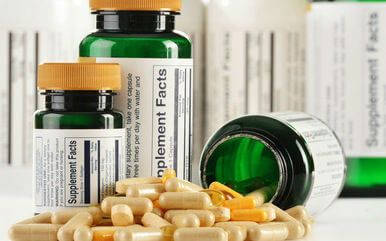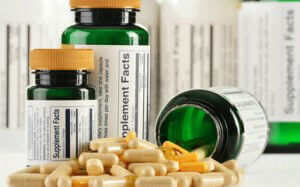
Bad news for those taking dietary supplements – several studies have found that what’s on the label may not actually be what’s in the bottle.
The online consumer watchdog, ConsumerLab.com, has tested several types of supplements for quality, with some unfavorable results. In 1999, when thirty different brands of ginkgo biloba were analyzed, seven of them were found to be lacking in the potency necessary for gingko biloba to deliver its health benefits.
In 2009, ConsumerLab.com tested 60 brands of multivitamins for key nutrients, proper labeling and lead contamination. 12 of the brands were found to be deficient in key ingredients, mislabeled, or – most frighteningly – contaminated with lead.
In another study reported by the Boston Globe, an independent laboratory tested seven brands of St. John’s Wort, and found that only one contained the 0.3 percent of hypericin, the promised active ingredient indicated on the label.
A research letter published in Jama Internal Medicine reported that in a Kaiser Permanente Center for Health Research study, tests of commercial vitamin D supplements showed that the dosages that were actually contained in the supplement were anywhere from 9 percent to 140 percent of the dosages listed on the labels – a huge range.
These discrepancies in dietary supplement integrity are largely due to the fact that there is no standardization of quality, and manufacturers have no requirement to prove that their products are what they claim to be before they go on the market.
Dr. Richard Firshein, author of The Nutraceutical Revolution, says, “there is a tremendous need for the industry to standardize supplements so people at least know that they are getting a specific ingredient. I know that there are many, many supplements that claim to contain a specific ingredient that actually don’t.”
However, given the history of the FDA, and the standardization and subsequent recall of many prescription medications and chemicals, would standardizing dietary supplements really ensure their quality and safety? If an ethical and honest organization was put in charge of the procedure, then yes, but how can we know this for sure, when our health is at stake?
 Since the great majority of what is found in supplement form is found naturally in healthy, whole foods, the best choice for most of us would be to get our vitamins, minerals and enzymes from fresh organic fruits, vegetables, herbs and beans, grass-fed dairy and/or meat products and healthy saturated fats such as extra virgin organic coconut oil. It is well-known that the body absorbs nutrients from food much better than from synthetic supplements.
Since the great majority of what is found in supplement form is found naturally in healthy, whole foods, the best choice for most of us would be to get our vitamins, minerals and enzymes from fresh organic fruits, vegetables, herbs and beans, grass-fed dairy and/or meat products and healthy saturated fats such as extra virgin organic coconut oil. It is well-known that the body absorbs nutrients from food much better than from synthetic supplements.
If you are severely deficient in a certain nutrient, and a health professional has recommended that you do take a supplement, do your homework when choosing a brand to trust. Dr. Firshein recommends calling the manufacturer and requesting information that shows specifically what a supplement contains, and in what quantity.
He says, “companies should be able to provide documentation from independent laboratories. If they can’t or won’t… then I would choose another supplement.”
-The Alternative Daily
Sources:
http://www.motherearthnews.com/natural-health/dietary-supplements-ingredients-zmaz00amzgoe.aspx#axzz2YyavOvlc
http://www.usatoday.com/story/news/nation/2013/02/11/vitamin-d-supplement-labeling/1909603/
https://www.consumerlab.com/news/multivitamin_review_report/6_16_2011/

